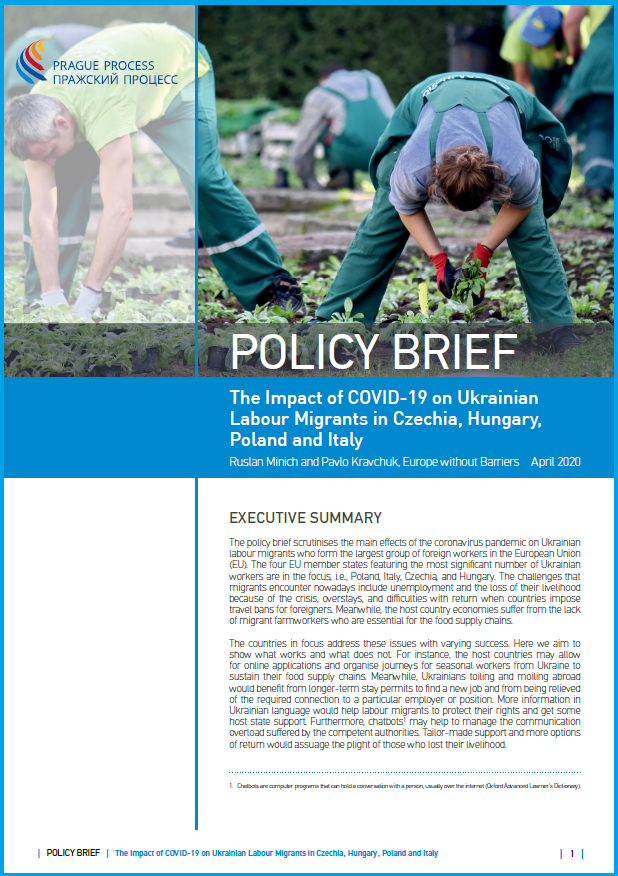The Impact of COVID-19 on Ukrainian Labour Migrants in Czechia, Hungary, Poland and Italy
29 April 2020
Briefs
The policy brief scrutinises the main effects of the coronavirus pandemic on Ukrainian labour migrants who form the largest group of foreign workers in the European Union (EU). The four EU member states featuring the most significant number of Ukrainian workers are in the focus, i.e., Poland, Italy, Czechia, and Hungary. The challenges that migrants encounter nowadays include unemployment and the loss of their livelihood because of the crisis, overstays, and difficulties with return when countries impose travel bans for foreigners. Meanwhile, the host country economies suffer from the lack of migrant farmworkers who are essential for the food supply chains.
The countries in focus address these issues with varying success. Here we aim to show what works and what does not. For instance, the host countries may allow for online applications and organise journeys for seasonal workers from Ukraine to sustain their food supply chains. Meanwhile, Ukrainians toiling and moiling abroad would benefit from longer-term stay permits to find a new job and from being relieved of the required connection to a particular employer or position. More information in the Ukrainian language would help labour migrants to protect their rights and get some host state support. Furthermore, chatbots may help to manage the communication overload suffered by the competent authorities. Tailor-made support and more options of return would assuage the plight of those who lost their livelihood.

